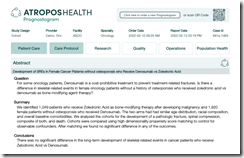Healthcare AI News 9/11/24
News

Apple announces Apple Intelligence, which will add AI capabilities to the latest models of IPhones, MacBooks, and IPads with the launch of IOS 18 later this month. It will include:
- Writing tools that can rewrite text, proofread, summarize, and suggest content for an email reply.
- A new version of Siri that supports voice and typing.
- Photo tools for removing unwanted objects, searching by content, and creating user-defined memory movies.
- Phone call recording and transcription.
- Coming later will be Visual Intelligence (searching by taking photo), an emoji generator, custom image creation, and connections to ChatGPT and third-party apps.

Apple adds sleep apnea detection for the Apple Watch using a new Breathing Disturbances metric and AI analysis.
OpenAI will reportedly release its Strawberry reasoning-focused AI as part of ChatGPT within two weeks. The system “thinks” for up to 10-20 seconds before responding to provide better responses.
Business

Japan’s drug and medical device agency approves IRhythm’s Zio AI-interpreted, 14-day cardiac monitoring patch that patients mail in to the company for analysis and reporting to their physician as an alternative to the Holter monitor.

Salesforce announces out-of-the-box AI services for 15 industries, including patient services and benefits verification for healthcare.
Philips will significantly expand its health technology work in India, especially that related to AI. The company’s innovation campus in Bengaluru houses 5,000 employees who focus on generative AI solutions for healthcare.
Drug maker Gilead Sciences contracts with Genesis Therapeutics to use its molecular AI platform to discover therapies. Gilead will pay Genesis $35 million upfront for three potential drugs, with additional payments for meeting development, regulatory, and commercial milestones. Genesis, which has raised $280 million in funding, is led by 32-year-old co-founder and CEO Evan Feinberg, PhD.
Research
Researchers from MIT, Massachusetts General Hospital, and Harvard Medical School develop ScribblePrompt, which segments biomedical images from human annotations.
Other
Hippocratic AI and healthcare education firm Adtalem Global Education will develop clinician AI training modules that will emphasize the learning needs of nurses.
A survey of UK doctors finds that nearly 90% are worried that patients who use generative AI for medical inquiries will receive misinformation. More than half are enthusiastic for using AI to provide diagnostic and treatment options to doctors themselves, while 83% think that government or medical associations should oversee AI’s use in healthcare.

Saudi Arabia’s King Faisal Specialist Hospital and Research Center, which established a dedicated AI center in 2019, has developed 20 AI-powered diagnostic and treatment applications. The applications automate tasks such as summarizing medical literature and monitoring patient progress, which it says has reduced bed wait times from 32 hours to six.
Contacts
Mr. H, Lorre, Jenn, Dr. Jayne.
Get HIStalk updates.
Send news or rumors.
Contact us.













































































Today's post contains the phoenixes rising from the ashes of the post COVID telehealth era. There's two things that destroy…